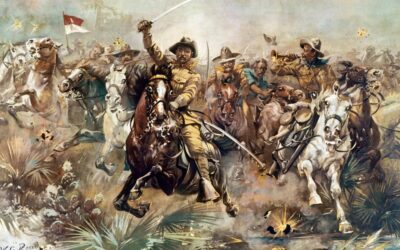Something to watch out for is when percentage changes are reported while excluding some of the raw numbers on which they are based. In this example, CBS News reports that “the number of police killed in the line of duty rose sharply in 2016,” with a “56 percent increase in shooting deaths over the previous year.” They do report the raw number of police shot to death in 2016 – 64 – but not the previous year’s, which was 41. This is an increase of 23 deaths in a country with over 900,000 sworn law enforcement personnel according to the National Law Enforcement Officers Memorial Fund. Reporting that a police officer’s chance of being killed went up from 0.00455% to 0.00711% (that is, 41/900,000 to 64/900,000), if it doesn’t confuse the reader, will likely make the violent shooting death of a police officer seem like a relatively rare event.
Additional context is provided by looking at trends in officer deaths from gunfire over the last decade (data from Officer Down Memorial Page):
2007: 67
2008: 41
2009: 48
2010: 59
2011: 68
2012: 48
2013: 32
2014: 48
2015: 41
2016: 63
Looking at these numbers, it’s difficult to consider 2016 an outlier or any indication of a “war on cops.” Further context is provided by looking at longer trends:

Source: Officer Down Memorial Page. Violent Deaths include those due to assault, bombing, gunfire, stabbing, terrorism, and vehicular assault.
As can be seen in the graph, there has been a downward trend in officer deaths over the last few decades. In 2016, the number of police officers killed by gunfire was less than half of what it was in the early seventies. Contrary to the narrative of there being a war on cops, rather than a series of isolated incidents of violence against police officers, the number of officers being killed is going down while the number of people employed as police officers goes up.
To provide even further context in terms of how dangerous of an occupation policing is, one can look at the fatal injury rates data provided by the Bureau of Labor Statistics. Looking at the data for 2015 (which are the most recent available), one finds that “Police and sheriff’s patrol officers” are not in the top 30 for fatal injury rates, ranking behind occupations such as logging, mining, fishing, farming, aquaculture, aircraft piloting, roofing, collecting refuse, iron and steel working, trucking, power-line installing, landscaping, construction, waste management, cement manufacturing, taxi driving, and mechanical repair.
This raises the question of why so many believe police officers ought to hold an esteemed position in our society. As Mises argues in Bureaucracy:
That the police department’s work is so efficient that the citizens are fairly well protected against murder, robbery, and theft does not oblige the rest of the people to be more grateful to the police officers than to any other fellow citizens rendering useful services. The police officer and the fireman have no better claim to the public’s gratitude than the doctors, the railroad engineers, the welders, the sailors, or the manufacturers of any useful commodity…It is true that society could not do without the services rendered by patrolmen…But it is no less true that everyone would suffer great damage if there were no scavengers, chimney sweepers, dishwashers, and bug exterminators.
Given that private security personnel don’t hold such an esteemed position despite providing protection against murder, robbery, and theft means that elevating the status of the government police officer is a manifestation of statolatry. However, by carefully looking at the data and the long term trends, rather than short-term spikes, we can see that there is little evidence of a “war on cops” or that being a cop is especially dangerous compared to several other occupations that are not held in such high regard.
Reprinted with permission from the Mises Institute.






























